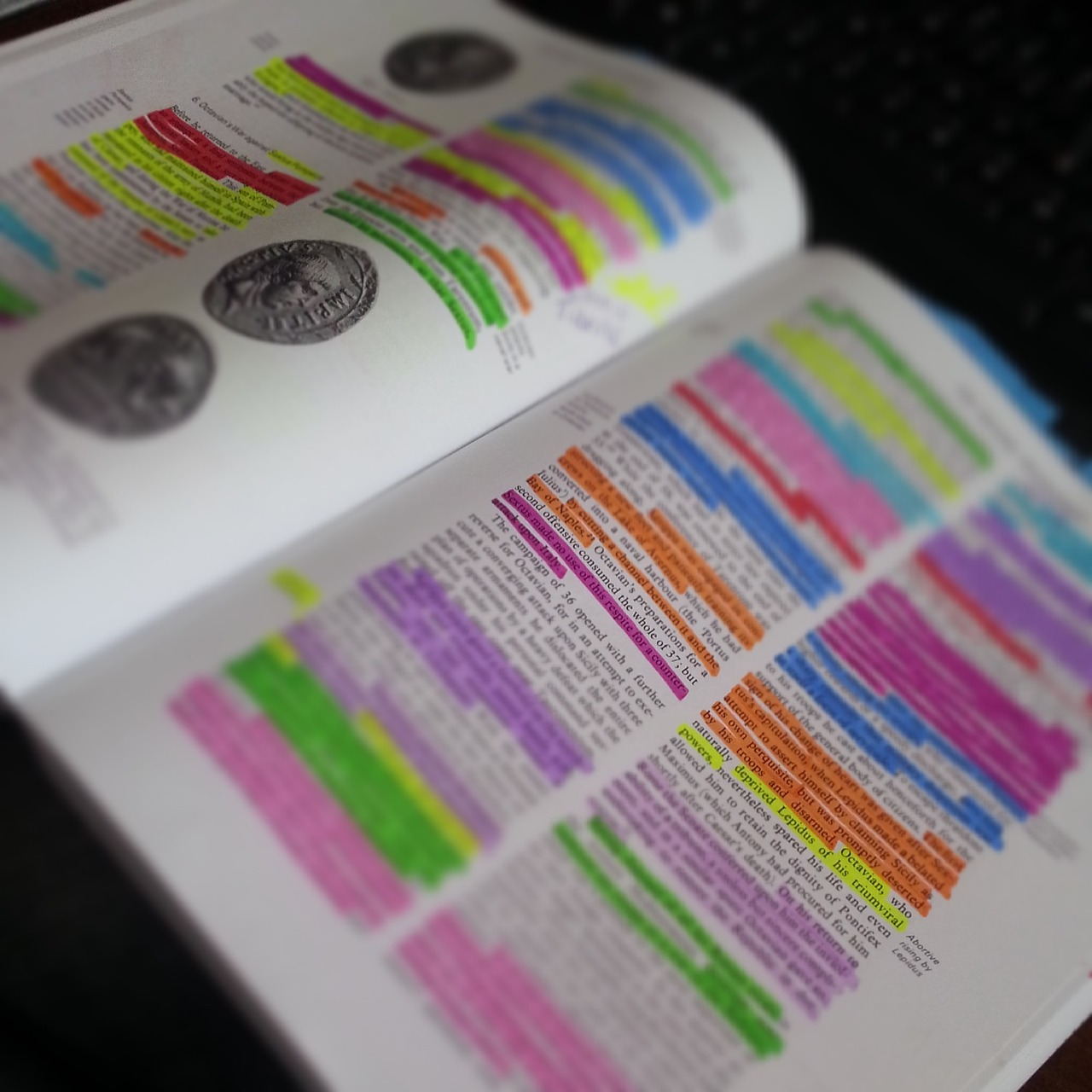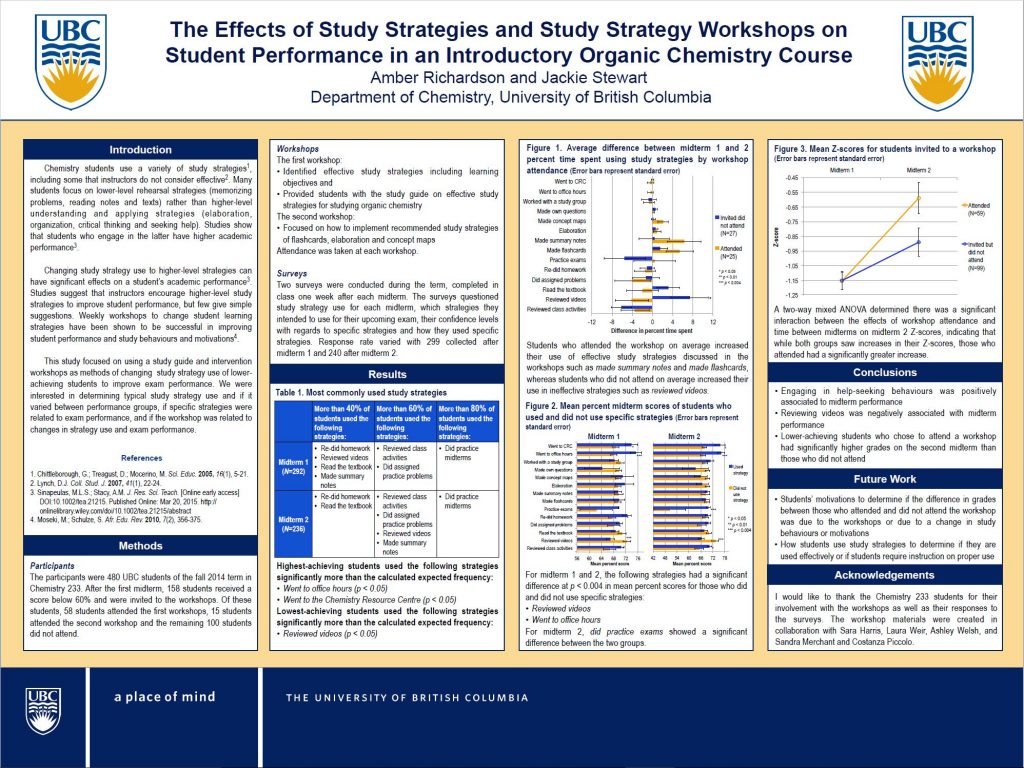After careful consideration of possible inquiry topics, I have finally selected a question that I want to pursue further this year. I know that I want to research self-regulated learning, study strategies and self-efficacy. These are topics that I am deeply passionate about so I couldn’t resist learning more about them in the inquiry process. I am very excited to research further within the context of secondary education and the sciences.
As for why I chose these topics and the question that has taken final form, it’s time for a story from Amber’s past…
During my undergraduate degree in Chemistry, I was given the opportunity to spend my fourth year labs in a Research Learning Experience in Chemical Educational Research. At this point in my undergrad, I knew that I wanted to be a secondary school science and chemistry teacher, and I wanted all possible experiences to be informative and relevant to my future. When I first met with my supervisor, I walked into her office with a book full of ideas on what I wanted to research. I wanted to know about exams, the flipped classroom, student attitudes, assessment, curriculum development, and more. But what I was most passionate about learning more about was what study strategies university students used and the effects of these study strategies on student performance. My supervisor was more than happy to let me pursue these interests and my research project was born: The Effects of Study Strategies and Study Strategy Workshops on Student Performance in an Introductory Organic Chemistry Course.

Reading and highlighting texts – an ineffective study strategy commonly used by students
I spent the next 8 months researching study strategies (which were effective or ineffective for studying organic chemistry), and collecting and analyzing data on student’s use of study strategies to see if a relationships existed between study strategy choice and midterm grade performance. I also had the opportunity to lead workshops for lower-achieving students on effective study strategies as an intervention for student success. During these workshops, I distributed a “Study Guide for Studying Organic Chemistry” for students to refer to and learn more about effective study strategies. The study guide and some more information about it can be found in this guest blog post I wrote for the Department of Chemistry here: http://learning.chem.ubc.ca/2015/10/02/study-strategies-guide-for-organic-chem/
Countless t-tests, ANOVAs and Bonferroni corrections later, I had my results: certain study strategies were significantly correlated with student performance, and students who attended the study strategy workshops saw significant increases in their midterm scores. Positive results had never felt so good! Below is my research poster outlining my findings that I presented in April 2014.
From this you may believe that I should be in educational research. While exciting as my results were, my biggest discovery was how passionate I was about teaching students how to be effective learners. The main point I learned from interacting with students is that they did not learn these study strategies or self-regulated learning skills in school. I made it my goal to incorporate these strategies and skills into my future teaching. This project allows me to research my fully developed inquiry:
How does the implementation of self-regulated learning (SRL) skills and study strategies in the classroom affect student self-efficacy?


